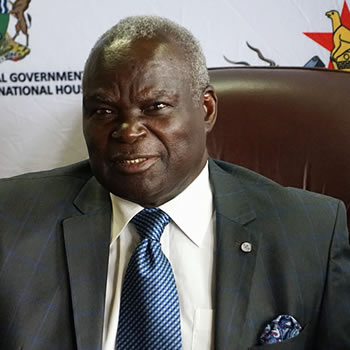By Lloyd Takawira
Residents and civil society organizations running under the Zimbabwe Devolution Agenda have dismissed the recently gazetted Provincial and Metropolitan Councils Bill which they argue lacks substance to address the devolution agenda.
In a statement, the Zimbabwe Devolution Agenda said the Devolution bill was hurriedly done.
“We, the Residents Associations and Civil Society Organisations under the banner of the Zimbabwe Devolution Campaign note with concern the quality and substance of the Provincial and Metropolitan Councils Administration Bill gazetted by the government of Zimbabwe on the 30th of March 2021.
“We call for re-gazzetting of an alternative Bill. It is our view that the Bill was hurriedly done as some clauses are not only unconstitutional but are incoherent and confusing.
“We are concerned that there is lack of clarity on the intentions of the Bill whether it is seeking to amend The Provincial Councils and Administration Act (29:11) or it is a new Bill that seeks to establish Provincial and Metropolitan Councils.
“We are aware that the confusion in the substance of the Bill has been further deepened by the recent Constitutional Amendment (No. 2) Act of 2021 that removed Legislators and Senators from being part of the Provincial and Metropolitan Councils, a provision that was contained in the Bill,” reads the statement.
The Zimbabwe Devolution Agenda also blasted government for it’s insincerity over how it involved civil society organizations and residents in the bill formulation but went on to exclude their views.
“While we appreciate the involvement of CSOs and Residents Associations by the Inter-Ministerial Taskforce (IMT) on alignment of legislation to the Constitution in the drafting of the Bill, we are however worried that there is no footprint and evidence of the contributions made by Residents Associations and CSOs in the contents of the Bill.”
The pressure group noted that gray areas on the devolution bill is the conferment and creation of two centers of power at provincial level .
“We are further disturbed that the Bill seeks to confer the constitutional functions of the Provincial and Metropolitan Council as provided for in Section 270 of the Constitution to the Provincial Minister and Devolution and Provincial Development Coordinator thereby creating of two centers of government at the provincial level which has the potential to create conflict in our governance system and becoming costly to the taxpayer.”
The Provincial Councils as elected and expoused by the Constitution must be given power to run government business at provincial level.
“The ceremonial status given to the elected Provincial and Metropolitan Council proposed by the Bill is unacceptable as it renders the Provincial and Metropolitan Councils powerless in discharging their constitutional mandate.”
The Zimbabwe Devolution Agenda argued that there be a single unit of government at Provincial level as proscribed by Chapter 14 section 270. The pressure groups further said that
“A single unit of government at the provincial level as prescribed by Chapter 14, Section 270, of the Constitution of Zimbabwe Amendment (No. 20) Act 2013.
• Conferring of executive functions to the Provincial and Metropolitan Councils and that the office of the Provincial Development Coordinator resides within the Provincial and Metropolitan Councils.”
The Zanu PF led government has been underfire for it’s machinations to redress the Constitution Amendment number 13 0f 2013 by instituting amendments that deviate from the 2013 Constitution.
However, government has remained adamant arguing the Amendments are in line with their majority’s mandate .
The most criticized has been the, cyber security services bill , constitutional Amendment number 1 and 2 and provincial and Metropolitan Councils Bill .
